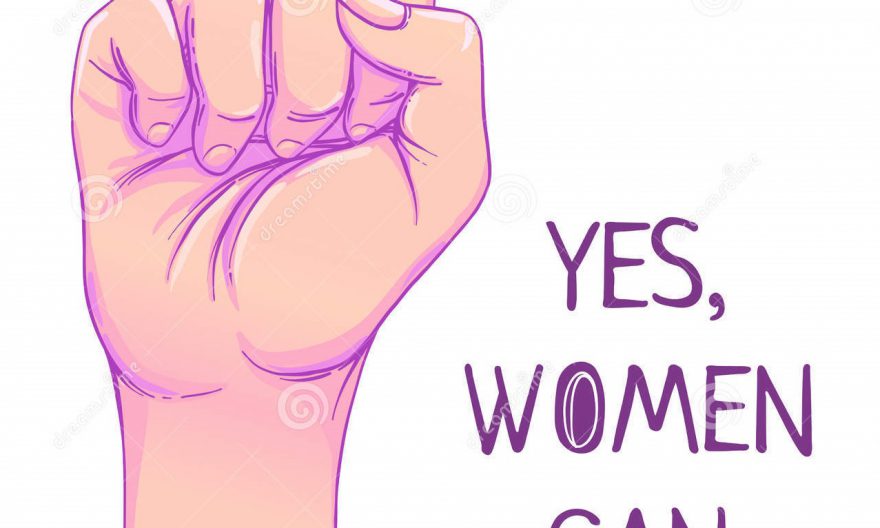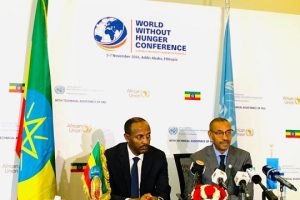
“Freedom cannot be achieved unless the women have been emancipated from all forms of oppression. All of us take this on board that the objective of reconstruction and development program will not have been realized unless we see in visible practical terms that the condition of women in our country has radically changed for the better and that they have been empowered to intervene in all aspects of life equal with any other member of the society” said once Human Right Champion and Former South African President, Nelson Mandela.
Yes, the socio-economic and political well-being of a nation cannot be realized without the active participation of women. That is why nations have been taking different measures to scale up the participation and empowerment of women in all sectors.
Over the years, Ethiopia has seen the number of women rising in senior government positions and today they have, relatively speaking, better representations both at the House of Peoples Representatives and Council of Ministers. The share of seats held by women in parliament has also climbed from under three percent in 1991 to over percent today.
Ethiopia has currently woman president and senior and key political positions are held by other women as well. The gender gap in the cabinets also stands 50 percent since Prime Minister came to office. Particularly, the coming of Abiy Ahmed into premiership has been one of the U-turn moments for neglected yet precious women. His coming has brought a very visible change in scaling up women’s representation both in the party and government leadership. Not only do women take a senior position but also occupy one of the linchpins of government structures such as security, and justice positions.
Earning huge acclamation for the progress, there seem to be more guts from the government to recruit more women leaders in the years to come. The party has women league branches in which it mobilizes, organizes, and recruits women leaders accordingly.
In similar fashion, the participation of women in diplomacy has also seen some improvements. For many women are born diplomats who can get the job done skillfully.
Despite the upward trajectory, women’s participation in the diplomatic frontiers remains a major issue of concern both in the ruling and opposition parties. Although, there have been few women who broke the barriers and shined over the mostly patriarchal political cultures, the participation and representation of women in the political arena call rather more works ahead.
In this regard, women’s participation in Ethiopian diplomacy is worth-giving attention to. Despite the purpose that diplomacy carries, advocating equal rights for all, the chapter on women’s participation in diplomacy still needs some improvement. Women are underrepresented in sectors such as public office. The workforce still needs improvement to offer an equal opportunity for women to get involved.
Rahel Wubshit in her article entitled ‘The Role of Women in Diplomacy’ stated that, the traditionally male domain existing power structures within the diplomatic infrastructure did not allow women to exercise diplomatic practices in different parts of the world.
Historically, famous women political leaders such as Empresses Taytu and Zewditu, Cleopatra VII, Isabella, and Elizabeth I among others, were enormously influential in the history of their country’s diplomatic relations.
However, according to several kinds of literature, historically women by and large played a secondary but substantial role as spouses of diplomats in which they shoulder many responsibilities. Without large fortunes or the necessary assistants the spouses were forced to shoulder greater burdens as they coped with a drifting lifestyle, housewifery, chaotic social schedules, and endless cooking for obligatory entertaining that all immensely contribute to the success of their partner, Rahel added.
The struggles for equality and empowerment of women in any industry have strong links to unequal power relations. The case also applies to women entering the diplomatic world. Bringing women into diplomacy is a symbol of hope and modernization for the 21st Century, yet it can be argued that they are still underrepresented in different diplomatic positions.
Women are naturally equipped with diplomatic skills such as negotiation, conflict resolution, promoting and maintaining peace. Regarding the skill of negotiation, women have proven themselves to be capable of deciding what is in the best interest of their community whilst making moral judgments that are rational. Speaking before the UN Security Council in May 2002, Terry Greenblatt, ex-executive director of Bat Shalom, Israel’s national women’s peace organization, stated that governments need women because “women are willing to sit together on the same side of the table…with the commitment and intention of not getting up until – in respect and reciprocity – we can get up together and begin our new history”. Generally, the willingness to negotiate and hammer out solutions is an innate trait for women, as the process of engaging in negotiations requires patience, cooperation, careful listening, and mutual understanding.
Women can be effective diplomats as they also have access to areas that are otherwise restricted to male diplomats. As part of preventive diplomatic measures, diplomats, in general, must be able to tap into the whole of society in order to analyze and anticipate future threats in vulnerable areas. In certain parts of the world where gender segregation is prevalent, men are not able to openly reach out to women and, therefore, are only able to consider half the population within their analysis.
Like women, female diplomats have access to the other 50 percent of the population, specifically in rural and conservative societies, and are hence able to ensure that the voice and concerns of women are not ignored. The presence of a female diplomat can also be considered symbolic and rallying for local women, especially if she is the only female ambassador serving in the country, Rahel argued.
Diplomacy, as being considered for long, is not symbolic of men’s status and views of world affairs, but rather it is reflective of a whole society. With respect to this, diplomacy in the 21st Century as indicated above must be represented equally by men and women of equivalent merit and standing. Women’s equal participation in diplomacy in addition to getting achievement in the field plays a crucial role in the general process of the advancement of women in any field.
After World War II, increasing numbers of women were making a career in diplomacy, and more women became diplomats, both by political appointment and by career progression. Despite these changes, some countries, particularly in the developing world, continued not to recruit women as diplomats, and sending women envoys to represent them was deemed unwise.
Ethiopian women diplomats, like many women around the world, have experienced similar challenges and obstacles in the past. Fortunately, there have been few important female role models in the field of diplomacy and foreign affairs within Ethiopia.
According to Rahel, the first female Ethiopian Ambassador was Yodit Imru, who started working in the Ministry of Foreign Affairs in 1953, in the department of International Relations and worked from Director-General to Vice Minister. She was the first woman diplomat to serve at a senior level during the formative stages of Ethiopian diplomatic history. The other exemplary most senior career diplomat who has served the Ministry for more than 50 years is Ambassador Konjit Sinegiorghis. She joined the ministry in 1962 and has held numerous positions both in Addis Ababa and overseas.
She further stated that, the future is brighter for Ethiopian women to engage in many areas of professions like a diplomatic career. But, the long-standing stereotypes, patriarchal mentality have to be combated and women themselves can reconcile their work and family life. Diplomatic service in its efforts to retain and maximize the efficiency of women diplomats should work in empowerment and capacity building through gender mainstreaming practices.
BY STAFF REPORTER
THE ETHIOPIAN HERALD TUESDAY 8 MARCH 2022




